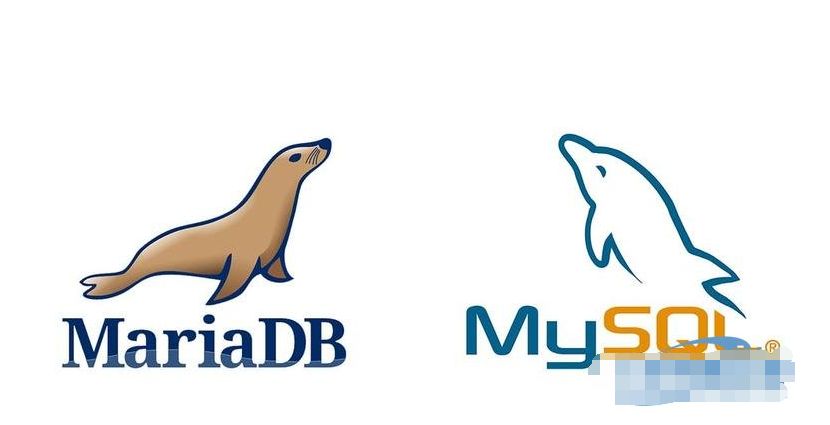Detailed introduction to data engine
The plug-in storage engine is one of the most important features of the MySQL database. Users can find out how to store and index data, whether to use transactions, etc. according to the needs of the application. MySQL supports a variety of storage engines by default to meet the needs of database applications in different fields. Users can choose different storage engines to improve application efficiency and provide flexible storage. Show engines supported by the current database +--------------------+---------+------------------ ------------+---------------+------+----------+ | Engine | Support | Comment | Tran
#1. Mysql Learning Data Engine Sample Code Sharing

Introduction: The plug-in storage engine is one of the most important features of the MySQL database. Users can find out how to store and index data, whether to use transactions, etc. according to the needs of the application. MySQL supports multiple storage engines by default to suit database application needs in different fields. Users can choose different storage engines to improve application efficiency and provide flexible storage
2. Practical mysql cluster construction (1)--Binary installation of mysql-5.6 under centos7

##Introduction : This series of articles completes the construction of a mysql database cluster based on the InnoDb data engine and implements the master-slave replication function. This blog post introduces how to install the mysql database using binary files
3 . Converting MySQL from MyISAM to InnoDB Errors and Solutions
Introduction: It turns out that I use it for installation, so I set the database usage (as shown in Figure 1 below) ), according to the official advice of discuz, I chose Non-Transactional Database Only (non-transactional database that only supports the MyISAM data engine). Using the MyISAM database has not yet involved the need for InnoDB, so I plan not to load the INNODB engine directly.
4. Difference analysis of MySQL InnoDB and MyISAM data engines
Introduction: InnoDB and MyISAM are using MySQL The two most commonly used table types each have their own advantages and disadvantages, depending on the specific application. The basic difference is: the MyISAM type does not support advanced processing such as transaction processing, while the InnoDB type supports
5. MySQL conversion from MyISAM to InnoDB errors and common solutions
Introduction: Due to the requirements of some programs, MyISAM data engine or InnoDB is required. The following are specific solutions. After testing, some problems may occasionally occur.
6. MySQL does not support InnoDB solution
Introduction: After installing MySQL under OpenSUSE, I found that There is no option to add transaction support data engine InnoDB.
7. Linux installation MySQL 5.1.55 without innoDB data engine
Introduction: Install the database under Linux, Encountered a lot of trouble. The following is one of the troubles: After installation, there is no innodb database engine. Find a lot of information, roughly as follows: 1. Go to
8. Sun began to close some MySQL functions Source code
Introduction: According to news from the MySQL User Conference, Sun announced and former MySQL CEO Marten Mickos confirmed that Sun Microsystems will close some MySQL code. Sun began to close the source code of the MySQL backup solution, and the code for many advanced functions will no longer be open. When Oracle acquired Innodb, the data engine company used by MySQL, it released it under the GPL license. This
9. Sqlserver2008 data engine features spatial data pre-experience
Introduction: Early experience of SqlServer 2008 spatial data. This article will demonstrate how to obtain basic geographic information data, and how to import it into SqlServer2008 with the help of foreigners' tools, and then observe the query results through the query tool. Looking forward to Sqlserver 2008 official version released. 1. Install sqlserver2008. Just install the data engine. Next
10. Precautions for installing ArcSDE 10.0 (Oracle) in Linux environment (SUSE 11) 11g
#Introduction: Before learning to install ArcSDE, I think most people like me have an understanding of ArcSDE based on literal concepts, "ArcSDE , the data path, is the spatial data engine of ArcGIS, which is a path for storing and managing multi-user spatial databases in a relational database management system (RDBMS). "The concept itself is deeply abstract. But installation
[Related Q&A Recommendations]:
The above is the detailed content of Detailed introduction to data engine. For more information, please follow other related articles on the PHP Chinese website!

Hot AI Tools

Undresser.AI Undress
AI-powered app for creating realistic nude photos

AI Clothes Remover
Online AI tool for removing clothes from photos.

Undress AI Tool
Undress images for free

Clothoff.io
AI clothes remover

Video Face Swap
Swap faces in any video effortlessly with our completely free AI face swap tool!

Hot Article

Hot Tools

Notepad++7.3.1
Easy-to-use and free code editor

SublimeText3 Chinese version
Chinese version, very easy to use

Zend Studio 13.0.1
Powerful PHP integrated development environment

Dreamweaver CS6
Visual web development tools

SublimeText3 Mac version
God-level code editing software (SublimeText3)

Hot Topics
 When might a full table scan be faster than using an index in MySQL?
Apr 09, 2025 am 12:05 AM
When might a full table scan be faster than using an index in MySQL?
Apr 09, 2025 am 12:05 AM
Full table scanning may be faster in MySQL than using indexes. Specific cases include: 1) the data volume is small; 2) when the query returns a large amount of data; 3) when the index column is not highly selective; 4) when the complex query. By analyzing query plans, optimizing indexes, avoiding over-index and regularly maintaining tables, you can make the best choices in practical applications.
 Can I install mysql on Windows 7
Apr 08, 2025 pm 03:21 PM
Can I install mysql on Windows 7
Apr 08, 2025 pm 03:21 PM
Yes, MySQL can be installed on Windows 7, and although Microsoft has stopped supporting Windows 7, MySQL is still compatible with it. However, the following points should be noted during the installation process: Download the MySQL installer for Windows. Select the appropriate version of MySQL (community or enterprise). Select the appropriate installation directory and character set during the installation process. Set the root user password and keep it properly. Connect to the database for testing. Note the compatibility and security issues on Windows 7, and it is recommended to upgrade to a supported operating system.
 Explain InnoDB Full-Text Search capabilities.
Apr 02, 2025 pm 06:09 PM
Explain InnoDB Full-Text Search capabilities.
Apr 02, 2025 pm 06:09 PM
InnoDB's full-text search capabilities are very powerful, which can significantly improve database query efficiency and ability to process large amounts of text data. 1) InnoDB implements full-text search through inverted indexing, supporting basic and advanced search queries. 2) Use MATCH and AGAINST keywords to search, support Boolean mode and phrase search. 3) Optimization methods include using word segmentation technology, periodic rebuilding of indexes and adjusting cache size to improve performance and accuracy.
 Difference between clustered index and non-clustered index (secondary index) in InnoDB.
Apr 02, 2025 pm 06:25 PM
Difference between clustered index and non-clustered index (secondary index) in InnoDB.
Apr 02, 2025 pm 06:25 PM
The difference between clustered index and non-clustered index is: 1. Clustered index stores data rows in the index structure, which is suitable for querying by primary key and range. 2. The non-clustered index stores index key values and pointers to data rows, and is suitable for non-primary key column queries.
 MySQL: Simple Concepts for Easy Learning
Apr 10, 2025 am 09:29 AM
MySQL: Simple Concepts for Easy Learning
Apr 10, 2025 am 09:29 AM
MySQL is an open source relational database management system. 1) Create database and tables: Use the CREATEDATABASE and CREATETABLE commands. 2) Basic operations: INSERT, UPDATE, DELETE and SELECT. 3) Advanced operations: JOIN, subquery and transaction processing. 4) Debugging skills: Check syntax, data type and permissions. 5) Optimization suggestions: Use indexes, avoid SELECT* and use transactions.
 The relationship between mysql user and database
Apr 08, 2025 pm 07:15 PM
The relationship between mysql user and database
Apr 08, 2025 pm 07:15 PM
In MySQL database, the relationship between the user and the database is defined by permissions and tables. The user has a username and password to access the database. Permissions are granted through the GRANT command, while the table is created by the CREATE TABLE command. To establish a relationship between a user and a database, you need to create a database, create a user, and then grant permissions.
 Can mysql and mariadb coexist
Apr 08, 2025 pm 02:27 PM
Can mysql and mariadb coexist
Apr 08, 2025 pm 02:27 PM
MySQL and MariaDB can coexist, but need to be configured with caution. The key is to allocate different port numbers and data directories to each database, and adjust parameters such as memory allocation and cache size. Connection pooling, application configuration, and version differences also need to be considered and need to be carefully tested and planned to avoid pitfalls. Running two databases simultaneously can cause performance problems in situations where resources are limited.
 Explain different types of MySQL indexes (B-Tree, Hash, Full-text, Spatial).
Apr 02, 2025 pm 07:05 PM
Explain different types of MySQL indexes (B-Tree, Hash, Full-text, Spatial).
Apr 02, 2025 pm 07:05 PM
MySQL supports four index types: B-Tree, Hash, Full-text, and Spatial. 1.B-Tree index is suitable for equal value search, range query and sorting. 2. Hash index is suitable for equal value searches, but does not support range query and sorting. 3. Full-text index is used for full-text search and is suitable for processing large amounts of text data. 4. Spatial index is used for geospatial data query and is suitable for GIS applications.






